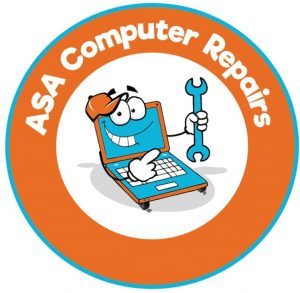Desktop Computer Repairs in Canberra
A desktop computer is a personal computer (PC) designed for use on a desk or table in a stationary location, as opposed to a portable laptop or tablet computer. It typically consists of a separate monitor, keyboard, mouse, and computer tower or casing containing the computer’s central processing unit (CPU), memory, and storage devices.
Desktop computers are generally more powerful than laptops and can be upgraded and customized more easily. They also typically have better cooling systems, which allows them to run more demanding applications without overheating. Additionally, desktop computers often have more ports and expansion slots for peripherals, such as printers, external hard drives, and graphics cards.
Desktop computers can be used for various tasks, including internet browsing, word processing, gaming, graphic design, video editing, and more. They are often used in professional settings, such as offices, studios, and homes for personal use.
Desktop computers, like any other electronic device, can experience various issues. Here are some of the most common problems that desktop computer users may encounter:
- Slow Performance: A desktop computer may become slow and unresponsive over time. This could be due to various factors, such as outdated hardware, a lack of storage space, or software issues.
- Viruses and Malware: Desktop computers can be susceptible to viruses and malware that compromise the system’s security and personal data.
- Hardware Failures: Desktop computers have many hardware components that can fail over time, such as hard drives, power supplies, and cooling fans.
- Blue Screen of Death (BSOD): This error message indicates a serious system error that can cause a desktop computer to crash or shut down unexpectedly.
- Connectivity Issues: Desktop computers can experience connectivity issues with peripherals, such as printers or external hard drives, and the internet.
- Software Issues: Problems with software can cause desktop computers to freeze, crash, or behave erratically. This can be due to outdated software, conflicting programs, or other issues.
- Power Issues: Desktop computers can experience power issues, such as failure to turn on or sudden shutdowns. Faulty power supplies, overheating, or other factors can cause these problems.
- Driver Issues: Drivers are software programs that enable communication between hardware and the operating system. Problems with drivers can cause desktop computers to malfunction or behave erratically.
These are just some issues that users may encounter with desktop computers. However, a qualified technician can resolve many of these issues through troubleshooting, upgrades, or repairs.
We at ASA Computer Repairs are qualified technicians specializing in desktop repair. Please feel free to call us today if you need help fixing your computer.
